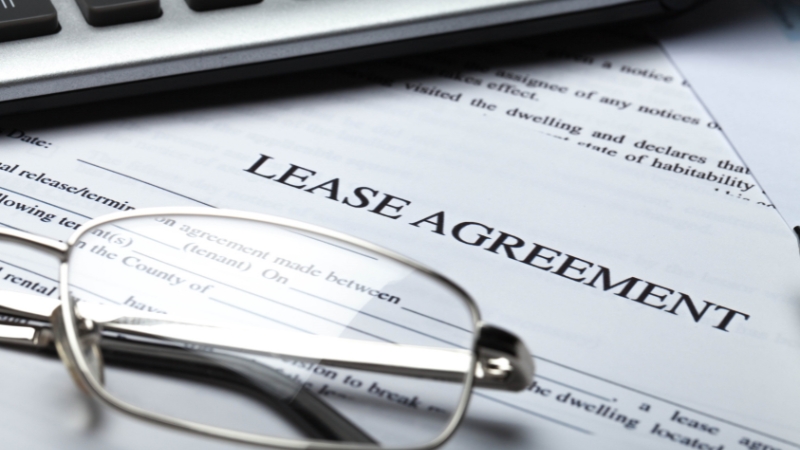Categories
Finance Lease vs Operating Lease Compared

One of the biggest questions we're asked in regard to asset finance is that of finance lease vs operating lease, and which is better.
Here at Clifton Private Finance, we regularly talk to our clients about which type of asset finance lease product is right for them, as it’s easy to be confused.
The truth is, there’s a lot of crossover between modern finance and operating lease products, which makes everything slightly more confusing.
So to make it all easier, we’ve written this complete guide to the differences between, and pros and cons of, Finance Leases vs Operating Leases.
Table of Contents
Leasing, Finance Leasing, and Operating Leasing Explained
Why Use Asset Finance?
4 Disadvantages of Asset Finance
Finance Lease vs. Operating Lease
Which is Better?
Apply for a Lease
Leasing, Finance Leasing, and Operating Leasing Explained
Firstly, leasing is a fantastic way for businesses to get their hands on equipment that they simply don’t have the cash in the bank to buy.
It’s part of a group of products known as asset finance that offers a range of options designed to suit most business needs.
The idea behind leasing is that you pay a company (who does have the available funds to buy expensive equipment) to use that equipment for a number of months or years.
Depending on the type of lease, when your contract ends you can either:
- Buy the equipment from them and own it for yourself
- Return the equipment
- Or trade it in for a new piece of equipment
The company that provides the lease is called the lessor, you are known as the lessee, and the equipment they are leasing to you is called the asset.
There are two main types of leasing - finance lease and operating lease.
Like most terms in business, there are various other names they are known by and we’ll cover that later.
For now, it’s enough to understand that finance lease gives you a little more effective ownership with the equipment and costs a little less, while operating lease is similar to renting the equipment, where the lessor is responsible for its maintenance.
Why Use Asset Finance?
Businesses need assets. If you had to buy everything you needed to run your business from scratch, the sheer amount of investment capital that would be required would be debilitating - it would make running many businesses simply impossible.
Asset finance provides a way for companies to get hold of machinery and equipment that’s needed for them to do their job with relatively little initial outlay. It’s used for all sorts of things, including:
- Company cars
- Vans
- Specialist medical equipment
- New up-to-date computer equipment
- The latest software
- Office furniture
- Plant machinery
- Tractors
- Manufacturing quality assurance machines
- Printing equipment
- Factory machinery
- Cranes
- Teslas, BMWs and other prestige cars for directors
- and much more…
Using asset finance spreads the cost of these assets, allowing you to get them with little more than a small initial payment and a good business credit score, and turning a huge capital expenditure into a manageable monthly payment.
But it does more…
Asset finance also takes a lot of the responsibility of ownership away from you, meaning that the whole burden of selling it on once you’re done with it is gone, upgrades when new equipment are possible, and (in the case of operating leases) maintaining the asset while you have it is someone else’s problem.
Related: Asset Refinancing - How It Works
4 Disadvantages of Asset Finance
Every financial product has its downsides, and asset finance is no different. There are a few things to consider before you enter a leasing agreement:

1. Contracts are set in stone
If you sign up for a three-year finance lease on your company car, or five-year terms on an MRI machine, then expect to be paying out for it every month as one of your top priorities.
Defaulting early on a lease is likely to leave you with a bill that represents the entire rest of the term, with no easy get-out clause.

2. It’s not yours, so don’t break it
The asset is not yours, and if you break it, you pay for it. Of course, there is insurance (which you are obliged to have), but if you write off the asset and the insurance doesn’t cover the entire bill then, it will have to come out of your pocket.

3. There will be restrictions on use
Part of the ‘it’s not yours’ aspect of the lease means there are restrictions on what you can do with it. While there’s a lot of flexibility with leasing and many finance leases give you the freedom to add your company livery on the car, or use your tractor as you see fit, you will have terms and conditions that must be followed.

4. You’re making someone else profit
Leasing is a business, and the fees that form part of the leasing contract are there to make the lessor money. There are no examples of asset finance where it’s cheaper in the long run to lease an asset than it is to buy it outright.
If you have the cash and can afford to buy the asset without putting a significant dent in your company finances, then in terms of pure maths, it's probably cheaper.
But the obvious caveat here is that, if you can't afford to buy the asset, your only option is to get finance, or go without the asset. How that affects your business trajectory is unique to you, but if you'd like some advice on whether asset finance is worth the costs to your business, our experts can lend a hand.
Finance Lease vs. Operating Lease
The main difference between finance leases and operating leases is that a finance lease gives you more effective ownership over the asset and costs a little less, while an operating lease is more expensive, but means you aren't responsible for the maintenance of the asset.
In more detail:
Finance leasing, sometimes called capital leasing, is designed for flexibility, both in terms of use and what you want to do with the asset after the contract. When you take out a finance lease, you don’t own the asset, but you are sort of treated as if you do. Finance leases have fewer restrictions than operating leases and offer an option to purchase at the end of the contract term.
Operating leasing, also often called contract leasing, is designed for ease of use. The lessor takes on all the responsibilities of the asset and leases it out to you in such a way that you don’t really have to worry about it. Maintenance is handled by the lessor and often insurance is as well (or comes as an obligatory part of the package).

Ownership and Accounting
Another of the fundamental technical differences between finance leasing and operating leasing is in terms of ownership and how that leads to business accounting.
With a finance lease, you will have the option to purchase the asset at the end of the contract. This will be for an agreed sum, often called a balloon payment that’s calculated at the beginning of the contract and, if you choose not to pay it, that’s usually fine - you can just hand the asset back and be done.
With an operating lease, on the other hand, there is no chance of ownership. The asset remains the property of the lessor throughout the contract and at the end.
Which is Better - Finance Lease or Operating Lease?
Picking which one is best for your company is going to be a balance of needs.
For some, the convenience of the operating lease puts it at the top of the pack, whereas the eventual ownership and greater flexibility of the finance lease (not to mention the lower cost…) leads many companies to opt for finance leasing.
In short:
- Cost - Finance leasing is normally cheaper, though don’t forget to factor in the cost of maintenance and insurance.
- Flexibility - Finance leasing is typically more flexible in terms of restrictions.
- Eventual Ownership - Finance leasing offers the option to purchase at the end of the contract.
- Maintenance - Operating leasing handles the maintenance for you.
- Insurance - Some operating leases will include insurance, but make sure to check.
- Length - Finance leases are generally longer term, while operating leases are good for short term asset use.
- Initial Costs - Both finance lease and operating leases have a standard larger initial payment (often called the deposit), usually three months lease costs in advance. However, many finance providers are willing to consider both finance leases and operating leases with no initial deposit payment.
- Accounting - Finance leases are considered an asset on the balance sheet, while operating lease payments are a business expense.
Latest Business Financing Case Studies
Below is a snapshot of our latest case studies, in which we broker finance solutions for businesses of all shapes and sizes, negotiating the best rates and terms and advising on the correct finance routes:
Apply for Finance or Operating Lease with Us
At Clifton Private Finance, we’re experts in getting the best leasing deals for our clients. As an established asset finance broker, we spend all day, every day, building our relationships with the many leasing companies out there and seeking out the best offers.
You could spend hours on the internet searching for leasing offers yourself, or you could let the professionals do it for you.
Call us today with any questions and let us get your business the assets you need.















